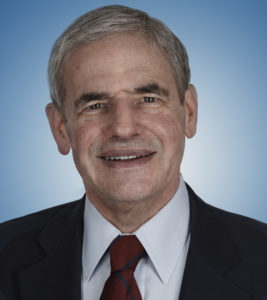People of good will around the world are heartened by the efforts of people in the Middle East and North Africa to topple or reform their oppressive governments. The successes to date remind us that the people of any country greatly outnumber the forces of the government. When protesters reach a critical mass, dictators flee.
Dictatorships are fragile. Dictators know this, hence their efforts to suppress communication. Truth is the friend of freedom, and the sharing of truth can spawn rebellion.
We can hope that new governments will allow the freedoms denied by the old ones, while recognizing that history suggests caution. Margaret Atwood observed:
A revolution often means only that: a revolving, a turn of the wheel of fortune, by which those who were at the bottom mount to the top, and assume the choice positions, crushing the former power-holders beneath them.
Since the struggle for liberty is eternal, a long-range perspective is necessary. Whatever the outcome of today’s turmoil, the struggle will continue — through time and throughout the world.
Role of the U.S. Government
The U.S. government lacks the credibility to intervene. Ted Galen Carpenter of the Cato Institute writes:
[A]ll too many Middle Easterners regard Washington as the meddling, imperialist power that is responsible for their unsatisfactory lot in life. A succession of U.S administrations has reinforced that negative image by backing corrupt, authoritarian regimes that looted and brutalized their people.
….
Such pervasive animosity makes it difficult, perhaps impossible, for Washington to play a major constructive role in the political transition that we’re now beginning to witness in the Middle East. Put bluntly, even if U.S. officials profess to support the goals of democracy and liberty, those statements have very little credibility with populations in that part of the world.
Further, it is not the proper role of the U.S. government to intervene. The Founding Fathers warned against foreign entanglements and unnecessary wars. The Independent Institute explains:
Non-interventionism … refers … to a government’s deliberate policy of abstaining from interfering in the affairs of other countries. It was the foreign policy of such early American statesmen as George Washington …, Thomas Jefferson … and John Quincy Adams …. and of later political leaders ….
The Independent Institute’s linked quotations include John Quincy Adams’s famous warning against intervention in his 1821 address as Secretary of State:
Wherever the standard of freedom and Independence has been or shall be unfurled, there will her heart, her benedictions and her prayers be. But she goes not abroad, in search of monsters to destroy. She is the well-wisher to the freedom and independence of all. She is the champion and vindicator only of her own. She will commend the general cause by the countenance of her voice, and the benignant sympathy of her example.
The U.S. would best serve its own interests, and set a better example for other nations, by restoring its own liberty. This would include ending the wars in Iraq and Afghanistan, winding down the military empire, and ending the foreign aid that sustains bad governments.
Sharing the Ideas of Liberty
The well-being of the people of the Middle East and North Africa depends on liberty, which brings peace and prosperity. Individuals in the U.S. and around the world can help support the efforts to share the ideas of liberty.
The Atlas Economic Research Foundation connects a network of more than 400 free-market organizations in over 80 countries, providing “the ideas and resources needed to advance the cause of liberty.” Recognizing the current opportunity for positive change in the Middle East and North Africa, Atlas and its partners are bolstering their longstanding efforts in the area. Atlas’s special page, “Imagining Tomorrow’s Egypt,” and the linked letter by Dr. Tom G. Palmer, Executive Vice President for International Programs, describe the exciting work being done, in languages including Arabic, Persian, and Kurdish.
Atlas links a short, inspiring, video interview, “Nobel Prize Winner Mario Vargas Llosa on Freedom in the Middle East.” Dr. Llosa explains that “freedom is not divisible” and observes that the movements we are observing are the natural result of people seeking freedom.
Conclusion
I invite friends of international liberty to join me in supporting Atlas. The work of Atlas and its partners will help lay the foundation for a freer Middle East and North Africa, and a freer world.
[Dead links deleted: June 25, 2016]




